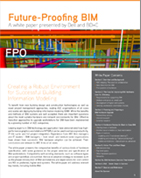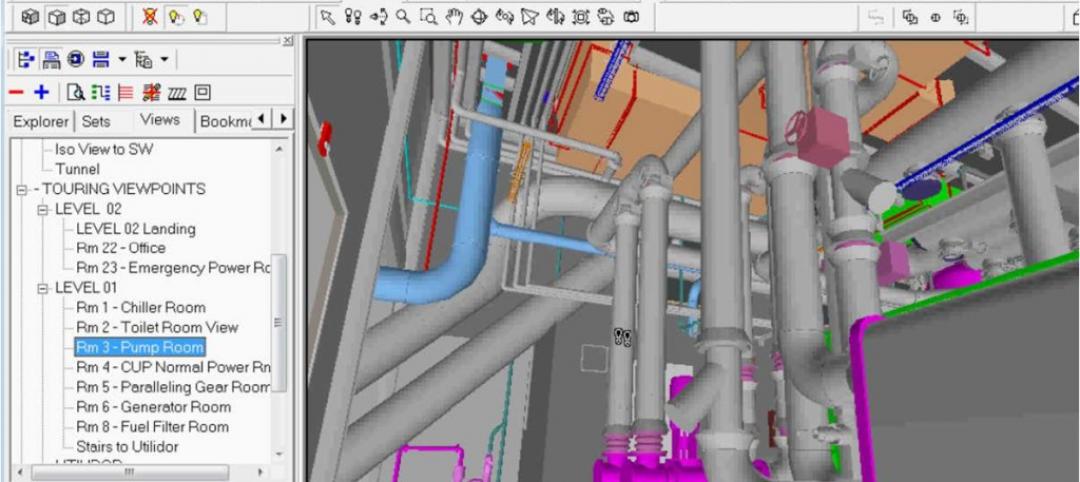To benefit from new building design and construction technologies as well as novel project management approaches, leading AEC organizations of all sizes and scales are deploying building information modeling (BIM). While the benefits and methods of BIM systems are well accepted, there are important questions about the most suitable hardware and network environments for BIM. Effective transition approaches to upgrade workstations for BIM have been implemented by a growing number of AEC companies.
Leading experts in BIM technology and application have demonstrated how high performance graphics workstations (HPGWs) can be used to enhance productivity, IT life cycle, and full project integration. Experience from AEC firm managers and IT leaders – BIM managers – from small- and medium-sized organizations have shown how successful BIM hardware adoption can be achieved. Their conclusions are relevant to AEC firms of all sizes.
The White Paper presents the comparative benefits of various kinds of hardware specification, with some guidance on the proper selection and specification of BIM workstations. Compatibility with existing standards, such as software types and project workflow, are outlined. Advice on adoption strategy is reviewed, such as the phased introduction of BIM workstations and expectations for cost control and ROI on preferred, higher-end systems.
Related Stories
| Feb 5, 2014
PPG creates new BIM library, adds custom BIM file creation to tool
PPG Industries announced that it has created a new library of building information and modeling (BIM) files, and that architects and specifiers can now use PPG Glass eVIEW to generate custom BIM files for any conceivable PPG glass configuration.
| Jan 31, 2014
LEGO, Google partner to develop 3D modeling tool for LEGO structures
The free tool, called Build, allows Chrome users to create virtual 3D structures using any shape and color in the LEGO catalog.
| Jan 30, 2014
See how architects at NBBJ are using computational design to calculate the best views on projects [video]
In an ideal world, every office employee would have a beautiful view from his or her desk. While no one can make that happen in real life, computational design can help architects maximize views from every angle.
| Jan 15, 2014
6 social media skills every leader needs
The social media revolution—which is less than a decade old—has created a dilemma for senior executives. While its potential seems immense, the inherent risks create uncertainty and unease.
| Jan 12, 2014
CES showcases innovations: Can any of these help you do your job better?
The Consumer Electronics Show took place this past week in Las Vegas. Known for launching new products and technologies, many of the products showcased there set the bar for future innovators. The show also signals trends to watch in technology applicable to the design and building industry.
| Jan 12, 2014
5 ways virtual modeling can improve facilities management
Improved space management, streamlined maintenance, and economical retrofits are among the ways building owners and facility managers can benefit from building information modeling.
| Dec 31, 2013
Top 10 blog posts from 2013
BD+C editors and our contributors posted hundreds of blogs in 2013. Here's a recap of the most popular topics. They include valuable lessons from one of the first BIM-related lawsuits and sage advice from AEC legend Arthur Gensler.
| Dec 31, 2013
BD+C's top 10 stories of 2013
The world's tallest twisting tower and the rise of augmented reality technology in construction were among the 10 most popular articles posted on Building Design+Construction's website, BDCnetwork.com.
| Dec 17, 2013
IBM's five tech-driven innovation predictions for the next five years [infographics]
Smart classrooms, DNA-based medical care, and wired cities are among the technology-related innovations identified by IBM researchers for the company's 5 in 5 report.
| Dec 16, 2013
Is the metal building industry in a technology shift?
Automation is the future you can’t avoid, though you may try. Even within the metal building industry—which is made up of skilled tradesmen—automation has revolutionized, and will continue revolutionizing, how we work.
















